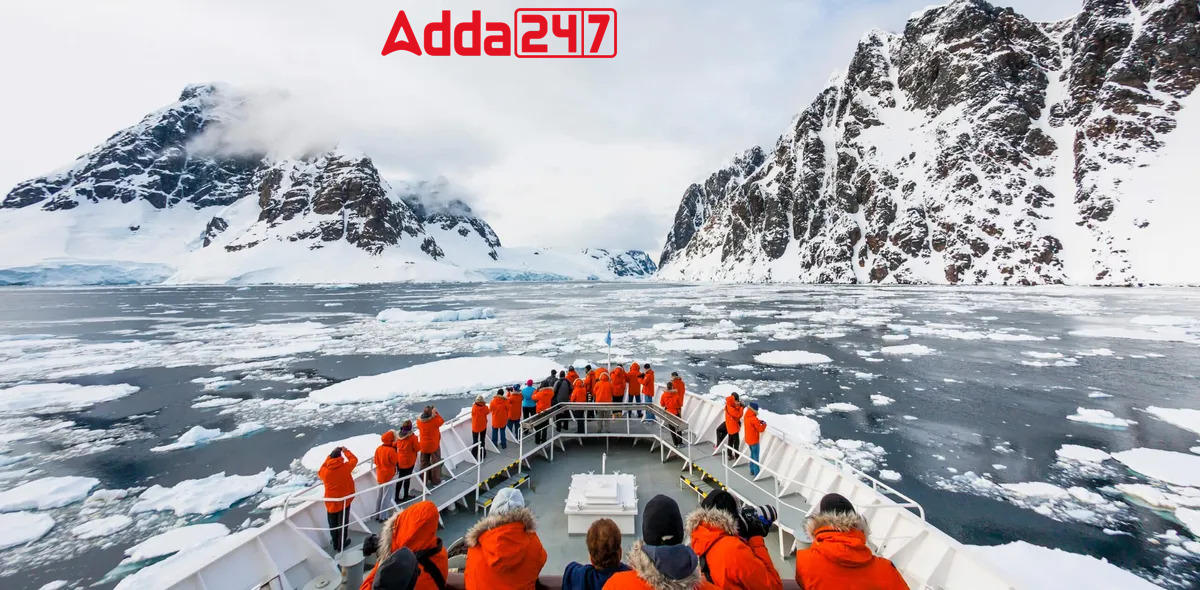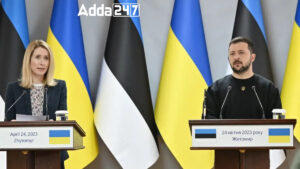India is set to play a pivotal role in facilitating the first-ever focused discussions on regulating tourism in Antarctica at the 46th Antarctic Treaty Consultative Meeting (ATCM) and the 26th Meeting of the Committee for Environmental Protection (CEP). The National Centre for Polar and Ocean Research (NCPOR), Goa, under the Ministry of Earth Sciences, and the Antarctic Treaty Secretariat will organise these meetings in Kochi, Kerala, from May 20 to May 30, 2024. Over 350 participants from nearly 40 nations are expected to attend.
Significance of ATCM and CEP
The ATCM and CEP are high-level global annual meetings conducted in accordance with the Antarctic Treaty, a multilateral agreement of 56 Contracting Parties signed in 1959. Member countries discuss issues related to science, policy, governance, management, preservation, and protection of Antarctica. The CEP, established under the Protocol on Environmental Protection to the Antarctic Treaty (the Madrid Protocol) in 1991, advises the ATCM on environmental protection and conservation.
India’s Role and Contributions
India, a consultative Party to the Antarctic Treaty since 1983, has the right to propose and vote on decisions regarding administration, scientific research, environmental protection, and logistical cooperation in Antarctica. India can establish research stations, conduct scientific programmes, enforce environmental regulations, and access scientific data shared by other Antarctic Treaty members. Dr. M Ravichandran, Secretary of MoES, emphasized India’s commitment to preserving Antarctica’s ecological integrity and leading initiatives for actionable recommendations in the broader framework of the Antarctic Treaty System.
Focus on Antarctic Tourism Regulation
With the increasing number of tourists visiting Antarctica, comprehensive regulations are needed to ensure sustainable and responsible exploration. India has advocated for a proactive and effective tourism policy based on precautionary principles. For the first time, a dedicated working group for regulating tourism in Antarctica has been formulated at the 46th ATCM, hosted by India. The Indian Antarctic Act, enacted in 2022, aligns India’s tourism regulations with international standards and collaborates with other Antarctic Treaty nations to achieve conservation goals.
India’s Historical Involvement and International Cooperation
India’s history of Antarctic research includes hosting the 10th SCAR conference in 2022, 11 Indian expeditions to the Southern Ocean, and significant collaborations with Norway and the UK. India also hosted the 30th ATCM in 2007, underscoring its commitment to the Antarctic Treaty System. Dr. Vijay Kumar, Adviser, MoES, highlighted India’s significant role in Antarctic research, environmental stewardship, and international cooperation over the past four decades.
Future Directions and International Collaborations
India will facilitate discussions for the possible induction of Canada and Belarus as consultative parties to the Antarctic Treaty System. Both nations have been signatories since 1988 and 2006, respectively. Ambassador Pankaj Saran, Chairperson of the 46th ATCM and 26th CEP, emphasized India’s leadership and commitment to preserving the pristine environment and advancing scientific research in Antarctica. The plenary session included an invited talk by Padma Bhushan Dr. Shailesh Nayak on ‘Antarctica and Climate Change’, and was graced by Pavan Kapoor, Secretary (West), Ministry of External Affairs.



 Zelenskyy and Estonia’s New PM Discuss...
Zelenskyy and Estonia’s New PM Discuss...
 Ronald L. Rowe Jr. Named Acting Chief of...
Ronald L. Rowe Jr. Named Acting Chief of...
 Rahaab Allana Honored with French Arts a...
Rahaab Allana Honored with French Arts a...
